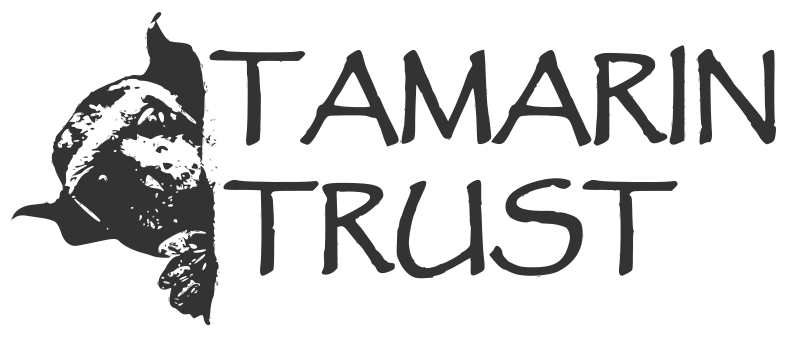
The Tamarin Trust supports the conservation of the smallest monkeys in the world – the marmosets and tamarins. For more information about our projects, please click on the projects or images below, or watch our short introductory video.
I was so inspired by the work of the late Jeremy Mallinson with the conservation of tamarins in Brazil, especially his support for golden-headed lion tamarins, that I decided to devote my life to working with these wonderful little primates and fight for their conservation. I hope I can do justice to the initiatives that Jeremy started, and develop and set up further projects to conserve some of the most threatened primates on this planet.
– Dominic Wormell, founder of Tamarin Trust
Sign up for our newsletter to keep up to date, or contact us at info@tamarintrust.org.

Saving the world’s smallest monkeys from extinction
Saving the world’s rarest marmosets

The buffy-headed and buffy tufted-ear marmosets are found only in the highlands of Brazil’s Atlantic forest. They are very threatened by habitat loss, and also by other species of marmoset that have invaded their ranges, competing with them for resources, and sometimes hybridising with them. If this continues, these two marmoset species face extinction. Our partners in the Mountain Marmoset Conservation Program urgently need to carry out a rapid survey of the remaining populations, to identify where they live, and where they are most at risk.
We are also hoping to fund a documentary about the conservation of these marmosets, to raise awareness of their plight.
Rescue centres for pied tamarins

Pied tamarins are living on the edge in and around the Amazonian city of Manaus. As they try to move between one tiny patch of forest within the city and the next, they are at risk from road traffic, cats and dogs, and electrocution from power lines. Tamarins in trouble are taken to rescue centres, where they can be treated for illness or injury, prior to being released again into the wild, or if they cannot, become part of a breeding programme.
We are planning to support the building of a specialist centre for pied tamarins in Manaus, alongside helping the existing rescue centres with enclosure upgrades, purchase of appropriate transportation boxes, and their medical and maintenance expenses.
Tamarin and marmoset workshops

We are continuing to run a series of workshops in Brazil focusing on the conservation management of threatened marmosets and tamarins. The workshops bring together Brazilian conservationists and policy makers working in rescue centres, zoos, universities, national and local government. All accommodation and food for attendees is paid for by the workshop organisers. This helps key staff working directly with our target species to attend.
Workshops in our species’ home countries help to build up skills and expertise, so that captive populations and reintroductions can be as successful as possible.
 Saving the world’s smallest monkeys from extinction
Saving the world’s smallest monkeys from extinction



